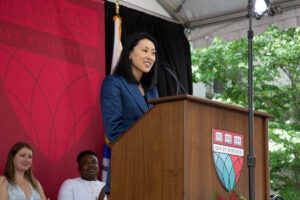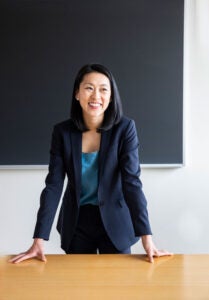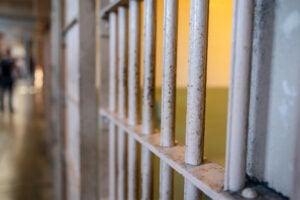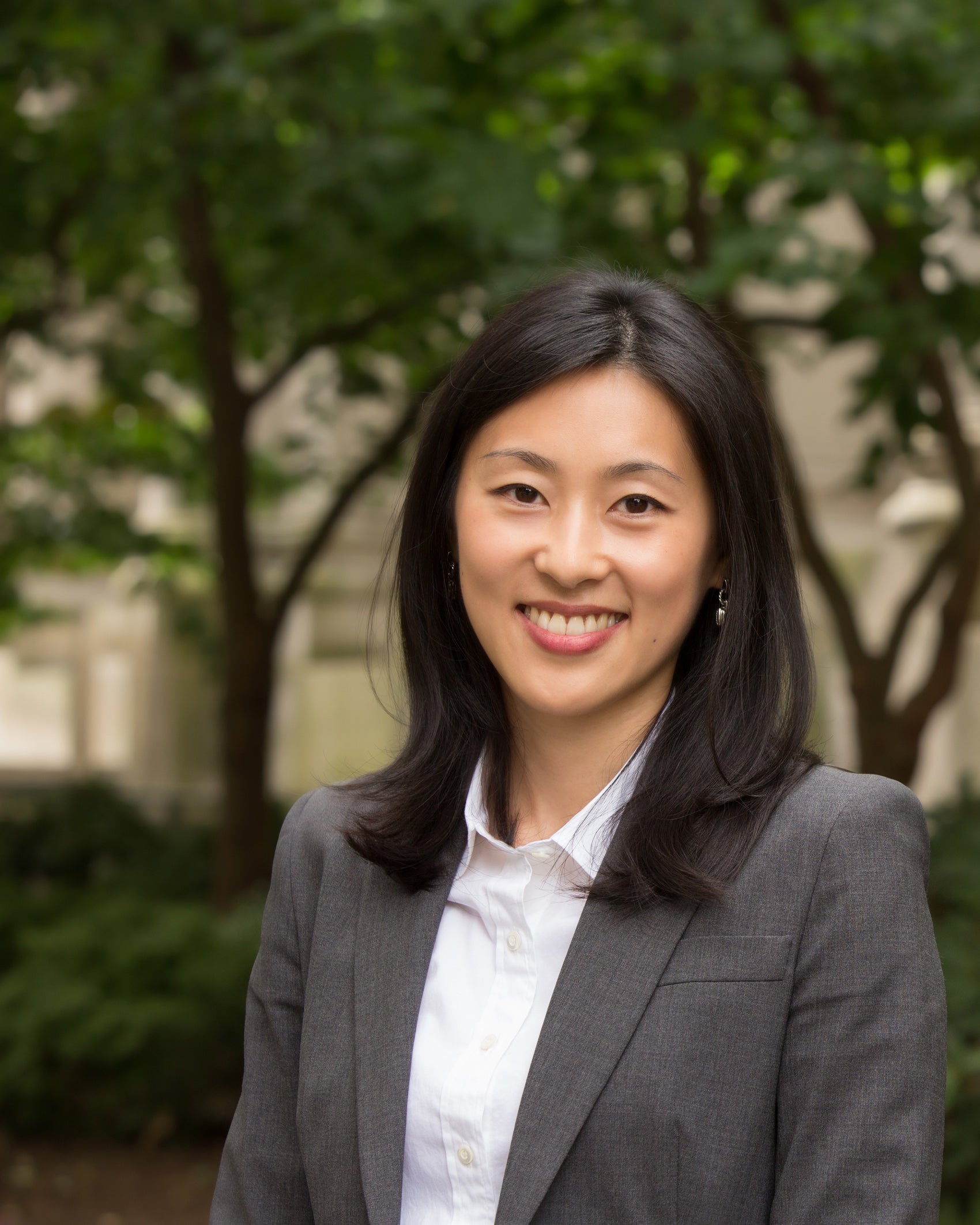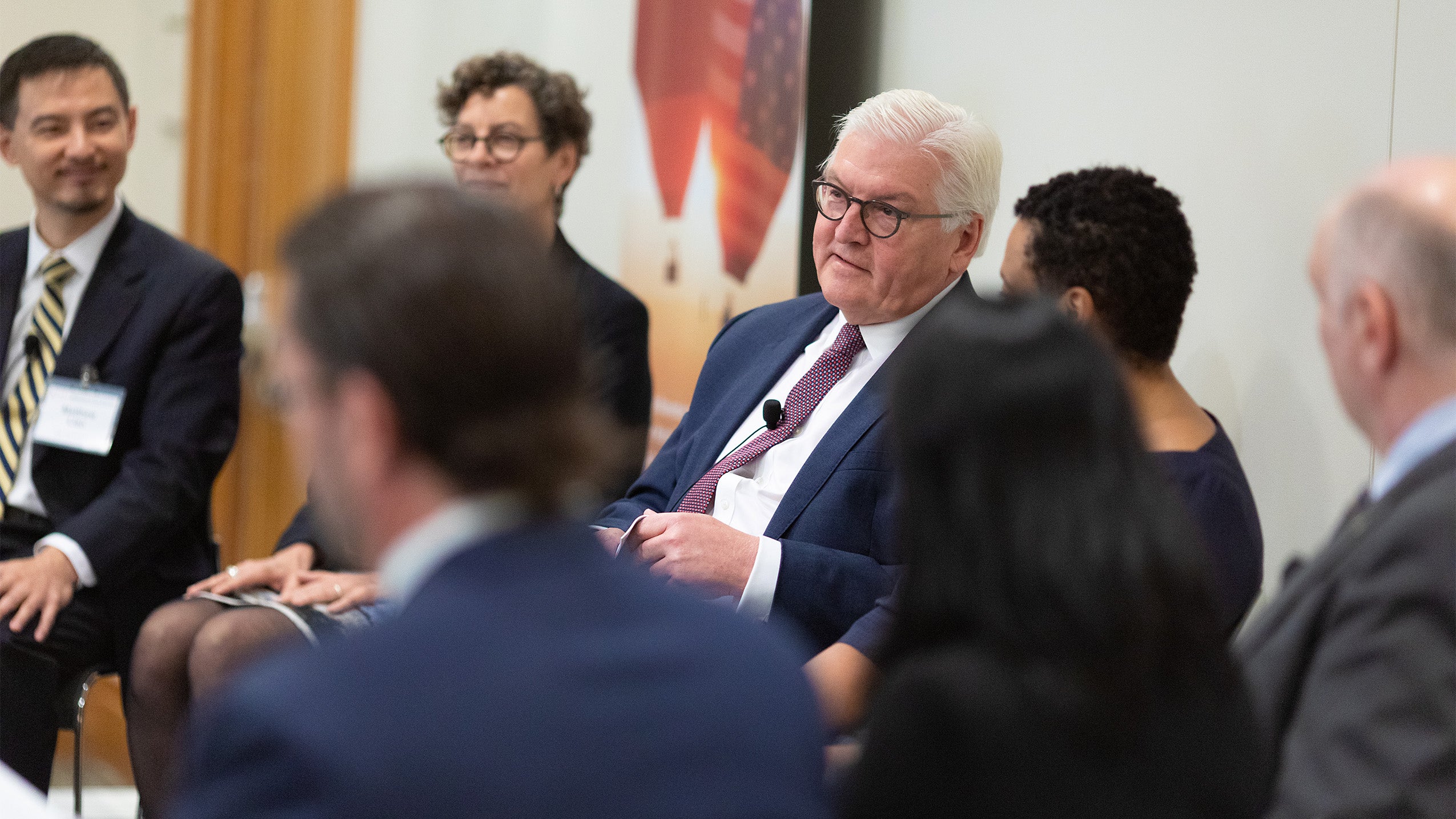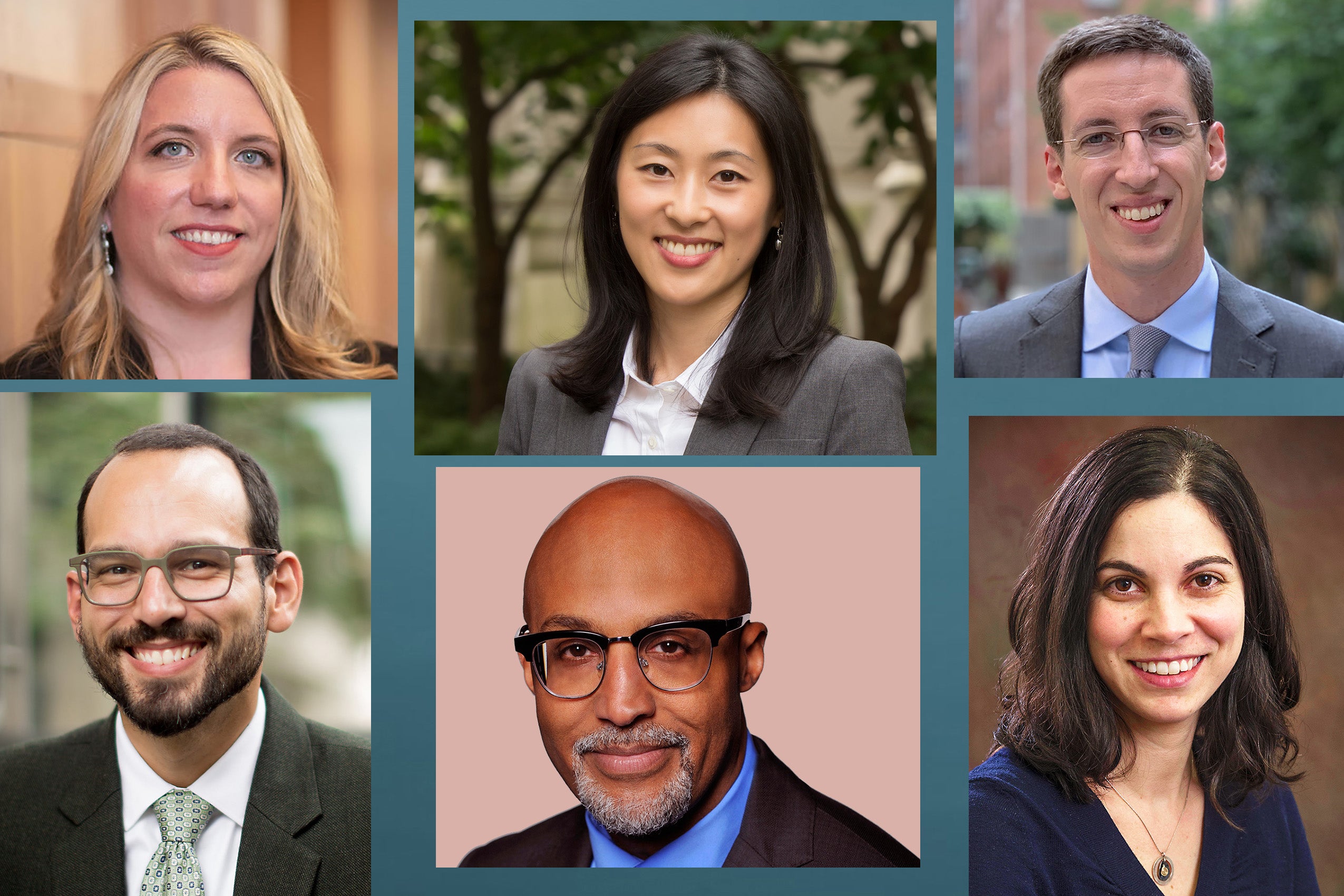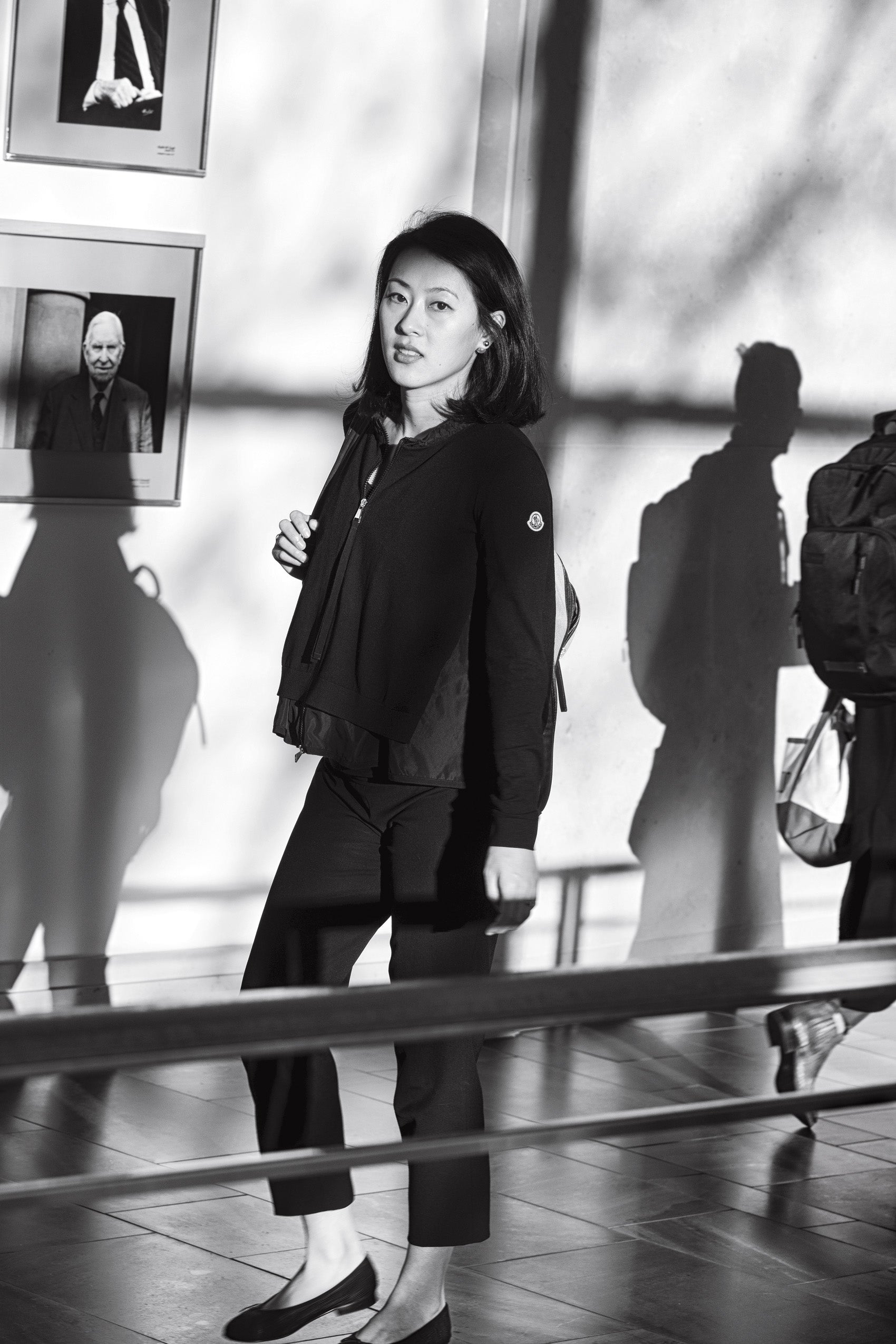People
Crystal Yang
-
Crystal S. Yang ’13, the 2023 recipient of Harvard Law School’s Albert M. Sacks-Paul A. Freund Award for Teaching Excellence, brought a personal message to graduating students when she accepted her award on Class Day.
-
Crystal Yang honored with ALI’s Early Career Scholars Medal
March 29, 2023
The American Law Institute has announced that it will award its Early Career Scholars Medal to Professor Crystal S. Yang ’13 and Professor Leah Litman of the University of Michigan Law School.
-
Experts on law and policy say the originalist view used to overturn Roe v. Wade could upend a 1976 ruling based on the cruel and unusual punishment clause.
-
A new paper published in the March 2 issue of The New England Journal of Medicine argues a minimal standard for inmate health care established…
-
A life’s mission sparked by disbelief over Tuskegee study
October 12, 2021
Marcella Alsan was in Professor Allan M. Brandt’s undergraduate class on the history of medicine and public health in America when she first learned about the infamous Tuskegee study, the federal government’s 40-year experiment observing the effects of untreated syphilis on Black men without their knowledge....Reaching out to scholars and practitioners in different disciplines to get at difficult questions in a “holistic” way is a hallmark of Alsan’s approach, said Crystal S. Yang, a Harvard Law School professor and Harvard-trained economist researching COVID-related health conditions in the criminal justice system with Alsan. ... “She’s the hardest-working person I know and is always pushing people to be better,” said Yang. “She’s always trying to teach the students about the right types of questions to ask, or how to do a certain type of analysis for randomized controlled trials. She’s just such a good role model for younger folks who are interested in doing this type of work.”
-
COVID adaptation
August 26, 2020
As the COVID-19 pandemic continues to rage across the globe, affecting every aspect of human society, Harvard Law School finds itself at a pivotal moment in legal education. From the crisis, and the challenges and opportunities of remote learning, it is wresting pedagogical innovations that are transforming what it means to get a legal education.
-
A COVID‐19 crisis in US jails and prisons
August 7, 2020
To fight the ongoing coronavirus disease 2019 (COVID‐19) pandemic, public health officials have implemented a range of social distancing measures aimed at reducing the risk of person‐to‐person transmission of severe acute respiratory syndrome coronavirus 2 (SARS‐CoV‐2). However, physical separation can be nearly impossible in confined spaces such as jails, prisons, and detention centers throughout the United States. Indeed, experts believe that overcrowding, together with a lack of testing, inadequate infection control measures, and shortages of basic supplies for both staff and inmates, has fueled massive outbreaks in US correctional facilities. The revelations have spurred uncomfortable questions about how the facilities perpetuate and exacerbate racial disparities and how inadequate testing can blind public health officials to emerging hotspots...In March, Dr. Alsan and Crystal S. Yang, PhD, JD, AM, a law professor at Harvard Law School in Cambridge, Massachusetts, launched a project with the National Commission on Correctional Health Care to survey jails, prisons, and juvenile detention facilities across the United States. Over a 2‐month period, the collaborators received responses about COVID‐19 case counts, testing, and screening procedures and about ongoing challenges from hundreds of sites in all but a handful of states. So far, the data have revealed at least 2 startling findings. Toward the end of the weekly surveys, the researchers began asking facilities about the race and ethnicity of COVID‐19–positive inmates. “The incidence rate of cases and suspected cases for African Americans was, from week to week, anywhere from 2 to 4 times higher than for white inmates,” Dr. Yang says.
-
Across the country and the world, communities are working feverishly to measure the coronavirus pandemic’s impact — struggling with shortages of tests and depleted health care capabilities to gauge the numbers of the infected, the sick, and the dead. Accurate data is the first vital step in understanding the scope of the problem and developing and calibrating the best response. But, as the world moves to lockdown and social isolation, what is happening to the approximately 2.3 million people behind bars in the United States and to the tens of thousands who work in those facilities — line officers, administrators, nurses, therapists, doctors? Harvard Kennedy School Professor of Public Policy Marcella Alsan and Harvard Law School Professor of Law Crystal Yang have teamed up with the National Commission on Correctional Health Care (NCCHC) to conduct the first detailed survey on the coronavirus pandemic’s impact on the country’s prisons, jails, and juvenile detention facilities. HKS discusses their groundbreaking work, what it tells us about the spread and treatment of the disease among some of the most vulnerable populations, and how this valuable data can guide practitioners and policymakers.
-
Researchers release first detailed survey on the effects of the coronavirus pandemic on correctional facilities in the United States
April 10, 2020
A survey by Crystal Yang and Marcella Alsan: A collaboration between Harvard University researchers and the National Commission on Correctional Health Care has yielded the first detailed survey on the effects of the coronavirus pandemic on correctional facilities in the United States. The ongoing survey has so far collected data from more than 320 facilities housing approximately 10 percent of the country’s inmates across 47 states. While not necessarily representative of all correctional institutions, the results nonetheless are vital for policymakers responding to the pandemic in their own states and communities. Among the key findings: Correctional officers, like the general population, are at risk for contracting of COVID-19 infection, with a higher infection rate than inmates. Many protocols call for screening inmates and staff for COVID-19 on a regular basis, but a significant fraction of facilities still lack access to lab testing. The nationwide shortage of PPE as well as ancillary supplies (such as cleaning products and thermometer probes) is also a problem for correctional health care operations.
-
A collaboration between Harvard University researchers and the National Commission on Correctional Health Care has yielded the first detailed survey on the effects of the coronavirus pandemic on correctional facilities in the United States.
-
Faculty Voices: Crystal Yang ’13 on fear and the safety net
January 31, 2020
Professor Crystal Yang ’13 discusses her paper "Fear and the Safety Net: Evidence from Secure Communities," which examines the link between tougher immigration enforcement in the United States and the lack of participation in government safety-net programs by Hispanic citizens.
-
On Nov. 1, German Federal President Frank-Walter Steinmeier discussed the "Ethics of Digital Transformation" at an event hosted by Harvard's Berkman Klein Center for Internet and Society.
-
New this year for HLS faculty
September 12, 2019
With the start of the academic year, four new scholars have joined the ranks of the Harvard Law School faculty and two have been promoted to professor of law.
-
Crystal Yang ’13, a law and economics scholar who focuses her teaching and research on empirical law and economics, was promoted to professor of law at Harvard Law School effective July 1, 2019.
-
Crystal Yang: An Empirical Approach
January 29, 2019
Assistant Professor Crystal Yang ’13, who joined the HLS faculty in 2014, brings an empirical focus to the study of criminal law. Yang, who holds a Ph.D. in economics from Harvard, has in the past focused her empirical studies on criminal sentencing. She has now turned her attention to the extensive use of cash bail and pretrial detention in the U.S., in order to understand their short- and long-term consequences.
-
...Two new papers look at the effects of the programme in its earlier incarnation. They find that it succeeded in its stated goal of removing undocumented workers—but it also reduced access to jobs, health care and nutrition for migrants and citizens alike...Marcella Alsan of Stanford University and Crystal Yang of Harvard University looked at access to welfare and health-care enrollment...Ms Alsan and Ms Yang found that the rollout of Secure Communities was associated with a 10% decline in food-stamp use among eligible Hispanic households. They also estimate that health-care coverage under the Affordable Care Act would have been 22% higher among eligible Hispanic households had Secure Communities not been in place, because of fears that any interaction with officials might lead to friends or family being deported.
-
Legal U.S. immigrants may be scared to sign up for benefits
August 6, 2018
The Trump administration's immigration crackdown may be leading to an unintended consequence: a drop-off in benefits enrollment among legal Hispanic immigrants. An immigration program called Secure Communities, which was rolled out during the Obama administration, is linked to a lower take-up of benefits such as food stamps and health care enrollment, according to a recent study published by the National Bureau of Economic Research. The researchers found Hispanic households were particularly hard-hit, even those with legal immigration status. "We find evidence that our results may be driven by deportation fear rather than lack of benefit information or stigma," wrote Marcella Alsan of Stanford Medical School and Crystal Yang of Harvard Law School in the paper.
-
...The National Bureau of Economic Research study found that in the decade before Donald Trump took office, there might have been a correlation between deportation fears and the drop-off in the number of Latino immigrants enrolled in the Supplemental Nutrition Assistance Program (SNAP), known as food stamps, and the Affordable Care Act insurance program, also known as Obamacare. Researchers looked at Latino enrollment in food stamps between 2006 and 2016, the most recent year for which data is available. They found that after the federal government began stepping up deportation efforts, Latino immigrant enrollment in SNAP and the ACA dropped...Declines in SNAP and ACA enrollment were largest in “mixed status” households where some people are in the country legally and some are not, the study found. For example, one family member may be a citizen, another an asylee or a permanent resident, and still another undocumented. “There’s a fear of exposing family members,” said Crystal Yang, assistant professor of law at Harvard Law School, one of the report’s authors.


